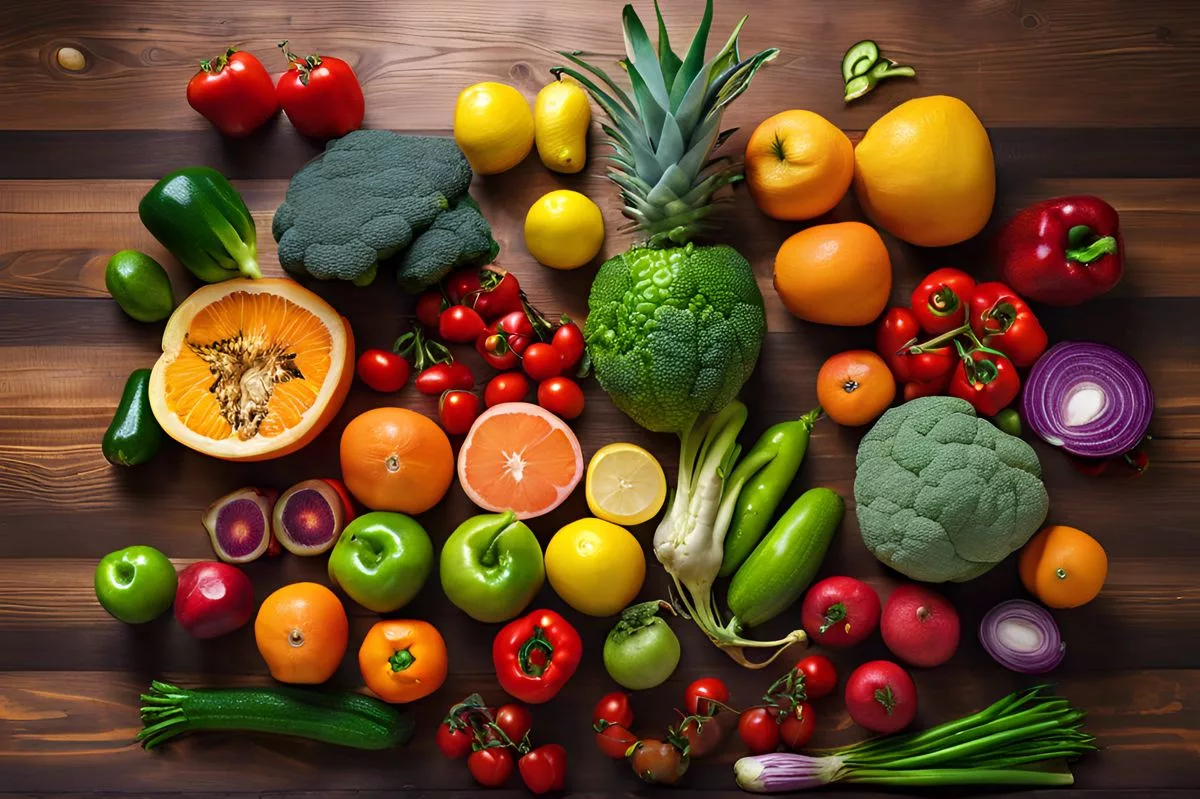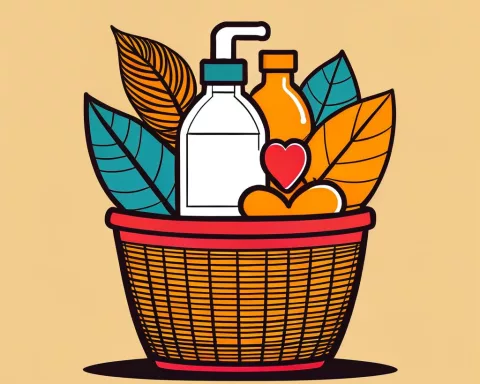Food is more than just something to eat in South Africa; it is a colorful part of life and culture. It brings people together, keeps traditions alive, and plays a big role in health. Every year, National Nutrition Week reminds everyone to eat healthier and make better food choices. This year’s theme, “Eat Right for a Better Life,” encourages South Africans to rethink their diets and focus on nutrition, helping to create a healthier nation together.
What is the significance of food in South African culture and health?
Food in South African culture represents a vibrant blend of traditions and plays a crucial role in health. It fosters community, preserves heritage, and addresses nutritional challenges. National Nutrition Week emphasizes healthy eating habits to improve overall well-being, urging a collective reassessment of dietary choices for better health.
The Culinary Tapestry of South Africa
South African culture is a vibrant blend of traditions, and at its heart lies a deep appreciation for food. The nation’s culinary landscape, rich with aromatic spices and diverse flavors, offers more than just sustenance; it holds cultural significance. However, alongside this gastronomic diversity, South Africa faces a critical challenge: improving its nutritional health. National Nutrition Week, observed annually from October 9th to 15th, prompts a nationwide reflection on dietary habits. This year’s theme, “Eat Right for a Better Life,” emphasizes the essential link between nutrition and overall well-being, calling for a collective reassessment of our food choices.
The South African National Health and Nutrition Examination Survey (SANHANES) provides a comprehensive overview of the country’s nutritional challenges. Alarmingly, approximately one-third of the population experiences hunger, a stark reminder of socio-economic disparities reminiscent of historical periods like Victorian England. Additionally, one in five South Africans grapples with obesity or overweight issues, mirroring global trends associated with urban living and increased consumption of processed foods. The survey further reveals that a relatively small proportion of people adhere to the recommended daily intake of fruits and vegetables, underscoring the urgent need for improved nutritional awareness and practices.
Councillor Patricia Van der Ross, a dedicated advocate for community health, stresses the fundamental connection between diet and health outcomes. She emphasizes that proper nutrition is crucial for maintaining good health, preventing diseases, and promoting overall well-being. Her insights echo timeless wisdom, reminiscent of Hippocrates’ enduring principle that food should serve as a form of medicine to sustain life.
City Health Initiatives: A Holistic Approach
To address these pressing nutritional issues, City Health implements a multifaceted strategy combining education, support, and community engagement. One notable initiative is the “Live Well Challenge,” which focuses on healthy weight management by involving a multidisciplinary team that collaborates with various communities. This program draws inspiration from historical health movements like 19th-century sanatoriums, which emphasized holistic well-being through balanced diets and physical activity.
The city’s initiatives also prioritize the health of future generations, focusing on optimal nutrition during pregnancy, infancy, and early childhood. By promoting breastfeeding and proper infant feeding practices, these efforts reflect timeless values of nurturing and care, reminiscent of the nurturing imagery often depicted in Renaissance art featuring the Madonna and Child.
Education serves as a pivotal bridge between knowledge and action within City Health’s efforts. Nutrition education is offered from childhood through adulthood, empowering individuals to make informed food choices. This endeavor mirrors the transformative educational movements of the Enlightenment, where the dissemination of knowledge became a powerful catalyst for societal change.
Clinical Interventions and Community Support
In clinical settings, healthcare professionals play a vital role in assessing and addressing nutritional needs. They meticulously evaluate patients’ nutritional status by measuring weight, height, and mid-upper arm circumference, ensuring precise interventions. For individuals struggling with obesity or malnutrition, clinics offer a crucial lifeline, referring them to dietitians for specialized guidance. These efforts parallel early 20th-century public health campaigns that tackled widespread health issues with data-driven strategies.
Special attention is given to children under the age of five, a particularly vulnerable group in terms of nutrition. Clinicians follow the Integrated Management of Childhood Illnesses guidelines to ensure appropriate interventions for malnourished cases. This approach reflects humanitarian principles that emerged during the 19th century, focusing on caring for society’s most vulnerable members and ensuring their well-being.
National Nutrition Week extends its reach beyond clinical settings by providing practical dietary tips for individuals looking to improve their eating habits. Emphasizing the importance of variety, the initiative encourages the daily consumption of at least five servings of fruits and vegetables. This advice draws parallels to the vibrant palettes of Impressionist painters, who captured life’s richness and diversity in their works.
Embracing Traditional Wisdom and Modern Needs
The inclusion of whole grains, lean proteins, and healthy fats in daily diets harkens back to traditional dietary practices that favored natural, unprocessed ingredients. Limiting sugary drinks, fast foods, and processed snacks serves as a reminder of historical movements like the Temperance Movement, which advocated for moderation and self-restraint in all aspects of life.
Hydration, often a neglected aspect of nutrition, becomes a focal point during National Nutrition Week. Encouraging regular water consumption throughout the day is a timeless practice, reminiscent of ancient Roman traditions that celebrated public baths and fountains as centers of communal health and vitality.
Returning to the kitchen to prepare home-cooked meals with fresh ingredients offers a personal touch that fosters connection and creativity. In today’s digital age, where convenience often takes precedence over quality, embracing the art of cooking becomes a form of resistance against a disposable culture.
Ultimately, National Nutrition Week calls for a fundamental reassessment of our relationship with food, urging a transformation towards personal and cultural wellness. By making informed choices and fostering community support, the journey to a healthier nation becomes achievable. This aligns with the ideals of historic reformers who aspired to create a brighter, more equitable future for all. As we embark on this path, let us celebrate the rich diversity of flavors and experiences that make South African cuisine a treasure trove of heritage and health.
FAQ: Nourishing a Nation: The Role of Food in South African Culture and Health
What is the significance of food in South African culture and health?
Food in South Africa is a vibrant representation of the nation’s diverse traditions and heritage. It fosters community connections and addresses crucial nutritional challenges. National Nutrition Week emphasizes the importance of healthy eating habits to enhance overall well-being, encouraging South Africans to reassess their dietary choices for better health outcomes.
What is National Nutrition Week, and why is it important?
National Nutrition Week, observed annually from October 9th to 15th, serves as a nationwide reminder to reflect on dietary habits. This year’s theme, “Eat Right for a Better Life,” highlights the essential link between nutrition and health, urging individuals to make informed food choices that contribute to a healthier nation.
What nutritional challenges does South Africa currently face?
According to the South African National Health and Nutrition Examination Survey (SANHANES), about one-third of the population experiences hunger, while one in five South Africans struggles with obesity or being overweight. Additionally, many people do not adhere to the recommended daily intake of fruits and vegetables, underscoring the urgent need for increased nutritional awareness and better dietary practices.
How does City Health address community nutrition issues?
City Health employs a comprehensive approach that combines education, support, and community engagement. Initiatives like the “Live Well Challenge” focus on healthy weight management through collaboration among multidisciplinary teams. The objective is to promote optimal nutrition and well-being for individuals and families, particularly targeting vulnerable populations such as children and pregnant women.
What role do healthcare professionals play in nutritional health?
Healthcare professionals assess patients’ nutritional needs by evaluating various metrics such as weight and height. For those facing obesity or malnutrition, clinics provide referrals to dietitians for specialized guidance. Special attention is given to children under five, ensuring appropriate interventions for malnutrition in line with guidelines for managing childhood illnesses.
How can individuals improve their eating habits during National Nutrition Week?
Individuals are encouraged to incorporate at least five servings of fruits and vegetables into their daily diets, focus on whole grains, lean proteins, and healthy fats, and limit sugary drinks and processed foods. Cooking with fresh ingredients and staying hydrated by consuming plenty of water are also essential steps for improving overall nutrition and fostering a healthier relationship with food.












